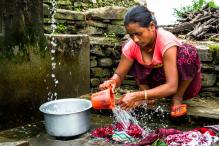FAST, the Finance Against Slavery and Trafficking initiative at United Nations University Centre for Policy Research, mobilizes the finance sector to identify, address and prevent slavery and trafficking. This sector can play a significant role in protection and prevention.
FAST set up the Survivor Inclusion Initiative (SII) in 2019 to increase financial access to basic banking services for survivors of modern slavery and human trafficking. Bringing together 13 banks and over 500 survivor support organizations, it has seen over 2000 survivor bank accounts opened in the UK, Canada, and US. Addressing issues such as survivors lack of identity documents, lack of address or poor credit history - all of which are a result of their victimization – along with institutions’ concerns about compliance with anti-money laundering regulations through simplifying due diligence. We are now undertaking studies of how this form of financial inclusion can offer protection to other populations vulnerable to (re) exploitation, especially in the Global South.
The current conflict in Ukraine has brought attention to the plight of refugees and their specific vulnerabilities not only to complete destitution, but also as we have heard today, to trafficking and slavery.
FAST has been supporting banks and banking authorities in Europe – especially the LGT, LLB and VP Banks, the Liechtenstein Bankers Association and the European Banking Authority - to make explicit statements about implementing financial inclusion as protection for the 4.5 million people fleeing Ukraine.
Refugees can be provided with some level of protection against vulnerability to modern slavery and human trafficking when their access to basic banking is provided for or maintained. This is to some extent enshrined within the Temporary Protection Directive, but it is acknowledged that limitations and challenges remain, particularly in relation to equal access to this form of protection by those most in need.
Lessons can be learned from the implementation of this particular response, in order to improve protection of vulnerable people globally.
FAST has always taken the position that financial inclusion and reintegration of victims, survivors and people vulnerable to slavery and trafficking, offers safeguards against exploitation and re-exploitation.
We believe that the financial access aspect of the response to the Ukraine crisis is an example of how States and the private sector, through synthesizing and simplifying policy, practice, and regulatory frameworks, can go a long way to protect the most vulnerable to slavery and trafficking.


